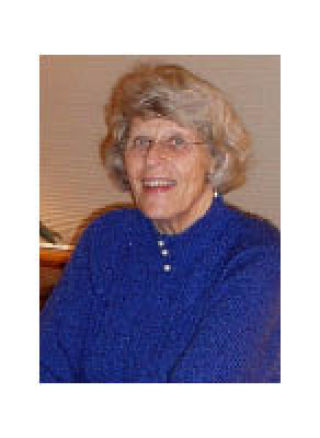Right: Tytti Langford, 2009.
“I spun the globe, closed my eyes and put my finger on the place where I would live. Please, God, don’t let it be Siberia,” said Tytti Langford. “Twenty-seven years old, living at home with my mother gone and taking care of my dad, it was time to move on. My finger landed on the Pacific Ocean so I found a nursing job in Honolulu.”
The Lopez Island resident, daughter of Aimo Saukkonen and Brigit Schreck, was born in 1939 in Helsinki, Finland.
Germany invaded Poland on the day of her and her twin brother’s baptism. Tytti’s father, in the Navy headquarters, made the announcement when he arrived late for the event. Her first passport was issued when she was a year old and flown from The Winter War to safety in Sweden. She and her three brothers were there about six months.
Back in Finland, Tytti remembers a night of bombing that occurred when the family walked home from a visit. “It was very cold and dark and it seemed the whole city was ablaze,” she said. “It is amazing how children adjust. We went from a good life to having nothing. Our shelter was a root cellar and we slept and played among potatoes.”
Russians bombed the Red Cross train carrying the children to neutral Sweden during The Continuation War in 1944. She remembers rushing through snow to hide in the woods. “There was nothing to eat in Finland,” Tytti said. When they finally got to Sweden, they were put in quarantine where they slept two children to a bed. Tytti awakened one morning and the other girl was dead.
Her father was assigned as military attache to Washington D.C. in 1953. The family arrived in a steamy September wearing their woolens. Wanting ice cream, they were allowed to buy it only if they requested it in English. Tytti recalls that welcome to the U.S. and the Good Humor man with her typical enthusiasm. She finally had her own room after living in a flat, took ice skating and ballet lessons and played Canasta with a friend. The Langford home was across the street. Her mother, a noted fashion designer in Helsinki, gave her fabric if she sewed her own clothes. She wore a black dress with white collar, cuffs and apron, and was paid for serving when her parents entertained. “I am grateful for that. I learned discipline and I had money for ice skating,” Tytti said.
Tytti discovered her love of nursing while caring for her mother through a lengthy and fatal kidney disease. After Tytti returned to Finland, she was considered overqualified by the nursing school because of her knowledge of languages—Finnish, Swedish, English and German. Determined to pursue the field, she found a job in a hospital in Stockholm where she began work as a hospital maid. Within three months she was an aid in the operating room. At the urging of her supervisor, she again applied to the College of Nursing in Helsinki and was accepted. She worked in the Red Cross Trauma Hospital after completing her training in 1963. Then came the day she spun the globe.
On her way to Hawaii, she stopped to see her brother in California where Mac Langford and his mother were living. “I always had a crush on Mac,” Tytti admits. Undesirable working conditions in Honolulu sent her back to California where she and Mac were married two months later.
The arrival of son, Michael, was an unexpected gift since Tytti had been told she could not have children. Eighteen months later, Mac obtained a teaching position at the international school in Frankfurt and Tytti was the school nurse. During their two-year stint, the couple traveled through much of Europe while camping in their Volkswagen van, and they returned to the U.S. in 1971.
The following year the family visited friends on Lopez and agreed this was home. They bought land on a handshake and made payments every month for the next ten years. The opportunity for Tytti to manage the medical clinic and Mac’s ability to take early retirement hastened their move to Lopez in 1993. Tytti worked at the clinic for eleven years. She continues to be involved in Hamlet House and the Red Cross. “I didn’t plan to become rural clinic nurse but I enjoyed the work and learned a lot.”
“People are so amazing when they see you work here and become part of community, they just take you in. Rich or poor, there’s not a division. They are good to each other. That’s the best thing,” Tytti said. During her major reconstructive back surgery she learned that Lopez comes to you in time of need. “I am so appreciative of every person. I’ve had experiences from one end to the other and have an incredible life. Sometimes I don’t believe it myself.”





